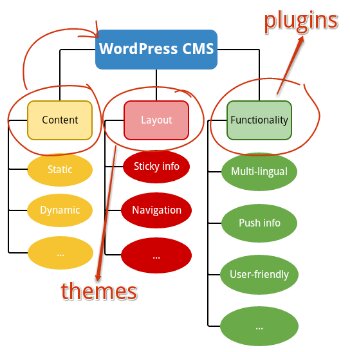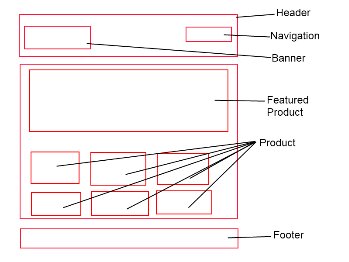I’m in the middle of writing a case study on using WordPress as a CMS (content management system). In the midst of researching for this topic, I noticed that most concerns when developing a WordPress CMS have to do with WordPress CMS themes and plugins.
In actual fact, themes and plugins should be the least of your concerns.
In my case, the diagram below summarizes the aspects I focus on before developing a CMS.

Planning a WordPress CMS
As with any important project, it is important to first analyze your business needs and what you plan to achieve with your website. In that way, you can then translate those needs into the themes and plugins required to achieve them.
In my example, I divide my assessment plan into three parts — content, layout and functionalities. You may have your own way of planning for your CMS. In any case, you can see from the diagram above how those needs are translated into the more technical aspects of my WordPress CMS development.
By identifying the type of content I need to put in the site, I can appropriately define whether I need to use a Post or a Page. Pages are excellent for static content such as a corporate profile, product description, location maps, and similar information. Posts, on the other hand, are useful for sections such as news, latest promotions, site updates, photo gallery, announcements, and the likes. Options to make these happen are already built into WordPress.

An example of a website layout plan
I plan the kind of layout I need to have for my site concurrently with the content. The layout will determine how your content can be focused so that website visitors can find the info they need faster and easily. This is when I can determine the right WordPress theme for the CMS.
Knowing what functions I need for the website to work helps me to determine what plugins I should use, and WordPress has plenty of those for free. For instance, since the website requires bi-lingual content support, I go to the WordPress plugins repository to find any language support plugin that fits my needs (I ended up using the excellent qTranslate).
WordPress CMS development doesn’t have to be expensive, either. The CMS I ended up building cost me nada. If you spend a little time learning about how to manage a self-hosted WordPress blog, it’s highly likely that you’ll experience the same ease of building a CMS using WordPress as I have.
Check out my other posts: « My South Korea 2012 holiday travelog / 4G and the city: P1 launching in Kota Kinabalu »